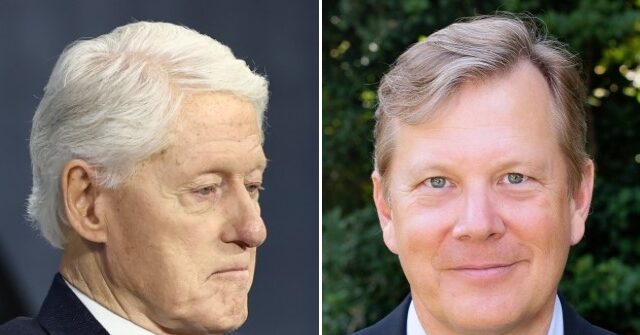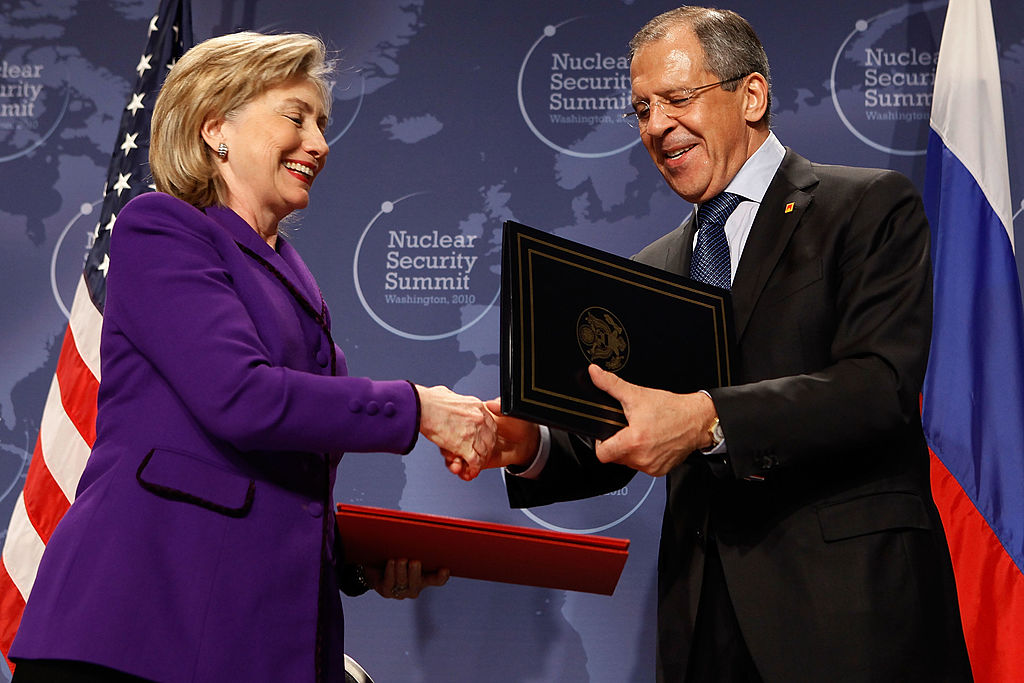Bill and Hillary Clinton were once masters of the “dark arts” of politics – spinning history and enriching themselves while running a global charity that became famous as a grift machine. Their skill even had a name: “The Clinton Blur.” Though long out of office himself, former President Bill Clinton is at it again.
“The news for GAI is that Bill Clinton is back,” says author Peter Schweizer, whose 2015 bestseller Clinton Cash exposed the financial shenanigans behind the Clinton Global Initiative. “Bill’s back, he’s mad, and he’s mad at me!”
Two weeks after the election of Donald Trump, Bill Clinton released a new book. Citizen: My Life After the White House, was not widely noticed at the time, but scattered across various chapters of the book are about 1,500 words attacking Peter Schweizer by name for his reporting all the way back in 2015.
Clinton’s book makes several inaccurate assertions about what Clinton Cash reported and the role of the New York Times, Washington Post, and ABC News in confirming what the book would reveal about how the Clintons used their charitable foundation to enrich themselves. On the most recent episode of The Drill Down, Schweizer and co-host Eric Eggers respond to Clinton’s claims.
U.S. Secretary of State Hillary Rodham Clinton (L) and Russian Foreign Minister Sergey Lavrov in 2010. (Chip Somodevilla/Getty Images)
Bill Clinton writes that Schweizer’s 2015 book was “political propaganda designed to help elect far-right wolves in populist clothing.” This, Schweizer says, is completely untrue. The investigation for the book began in 2013, while Hillary Clinton was still Secretary of State under President Barack Obama and long before either she or Donald Trump announced their candidacies.
What piqued GAI’s interest at the time, Schweizer has said, was the Clintons’ own financial disclosure forms (required for high government officeholders) that showed enormous sums of cash coming to their foundation from corrupt countries such as Russia, Kazakhstan, and Ukraine, all of which surged in 2009 after Hillary became secretary of state.
“The facts are simple. The Clinton Foundation took in $250 million in 2009,” Schweizer says. That level was sustained during the four years she was in office. Once she left office, contributions to the family foundation began to dwindle until, in 2020, it received just $16 million in contributions, a 93% decrease from its boom days.
Bill’s memoir also attempts to spin the revelations in Clinton Cash regarding Uranium One, an American mining company that was sold to Russia in a deal approved while Hillary Clinton was Secretary of State and a key member of the inter-agency group that had to approve any sale of a strategic asset to a foreign power. Schweizer’s book showed that several Clinton cronies and megadonors were enriched by the deal.
Clinton argues there was no scandal there because Hillary did not personally approve the deal. In fact, the approval was handled by a State Dept. staffer closely tied to John Podesta, a Clinton administration operative who would become Hillary’s campaign chairman in 2016. The Clinton “blur” here, as reported in Clinton Cash, was in distancing Hillary from the decision while her foundation reaped donation benefits from grateful investors in the deal, including Canadian mining magnate Frank Giustra. “It’s a distinction without a difference,” Schweizer says.
Bill also claims Schweizer’s book “achieved its larger purpose when, amazingly, The New York Times and The Washington Post joined Fox in signing ‘exclusive’ agreements to use the book as a ‘resource’ for the campaigns, knowing full well whose payroll the author was on and his past work as a right-wing propagandist.”
While it’s certainly eye-popping to see the New York Times treated as part of a “right-wing” conspiracy, the truth is that Schweizer simply furnished them advance copies of some of the research. They produced their own stories that corroborated and even furthered the findings contained in the manuscript. Jo Becker, a Pulitzer Prize-winning journalist, produced a front-page exposé on the Uranium One story for the Times after confirming and supplementing what the book would reveal.
“We call out powerful people. And it’s satisfying to know that, nearly 10 years later, Bill is still mad and still won’t let go of it,” Schweizer tells Eggers.
Clinton’s book never disputes the facts, Schweizer says. They never denied their foundation took in nearly $150 million from investors in Uranium One, for example. A Russian bank with interests in the deal paid Bill $500,000 for a single speech in Moscow the same month the deal was under official review.
Schweizer recalls only one noteworthy figure who tried to push back on the revelations in Clinton Cash. That was a testy interview on ABC News with George Stephanopoulos, who did not refute the facts, nor did he reveal to his audience his own glaring conflict of interest – the fact that he was himself a major donor to the Clinton Foundation. “Where is the smoking gun?” Stephanopoulos asked Schweizer repeatedly in an audio clip of the interview. “You have no evidence of a crime.”
Schweizer replies: “It’s not up to an author to prove a crime, George.”
Incidentally, Stephanopoulos was recently forced to apologize to Trump and pay $15 million (plus legal fees) in a defamation settlement for statements he made about the President-elect on his show.
All of this raises the question — Why now? Why does Bill Clinton want to reopen the scandals of the Clinton blur? Schweizer believes it relates to the coming fights over the future direction of the Democratic Party.
The question for defeated Democrats is whether they want to continue embracing the extreme progressivism “of AOC and Bernie Sanders,” Schweizer says, or whether they want to resurrect Clintonism, with its once-successful approach of projecting centrism to the electorate while performing a slower left-wing creep. “To resurrect Clintonism, they have to resurrect the Clintons,” Schweizer says, so they must try to spin the corruption allegations that have long dogged both of them.
“Clintonism was really about triangulation and deal-making,” Schweizer continues. Bernie Sanders made a valid point when he ran against Hillary for the 2016 nomination that it was essentially corporatist in action.
Schweizer also points out that then-Vice President Joe Biden had a front-row seat to watch how Hillary and Bill were able to monetize their power while she was in office. They may have taken the lesson in hatching their own family business dealings, beginning in 2013 with Hunter’s $1 billion deal in China.
In his book, Bill Clinton admits to having “outbursts of rage” for two years after Hillary’s 2016 defeat. His attempts eight years later to blame Schweizer, or then FBI Director James Comey, or even the New York Times for her loss shows that maybe he’s just channeling differently.
For more from Peter Schweizer, subscribe to The DrillDown podcast.




